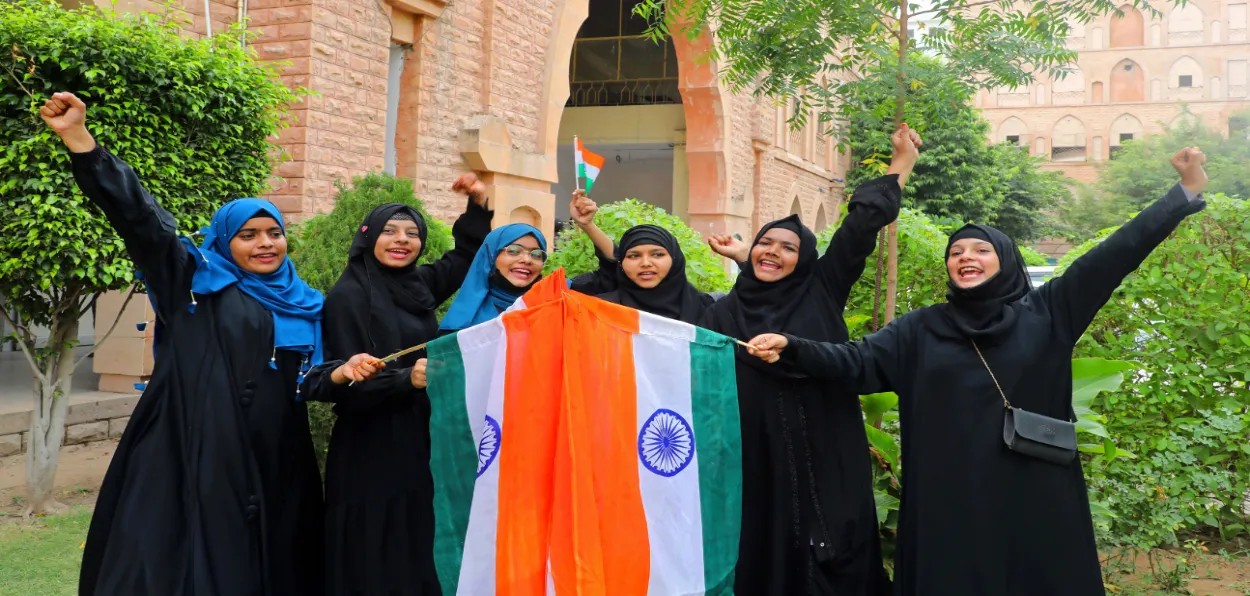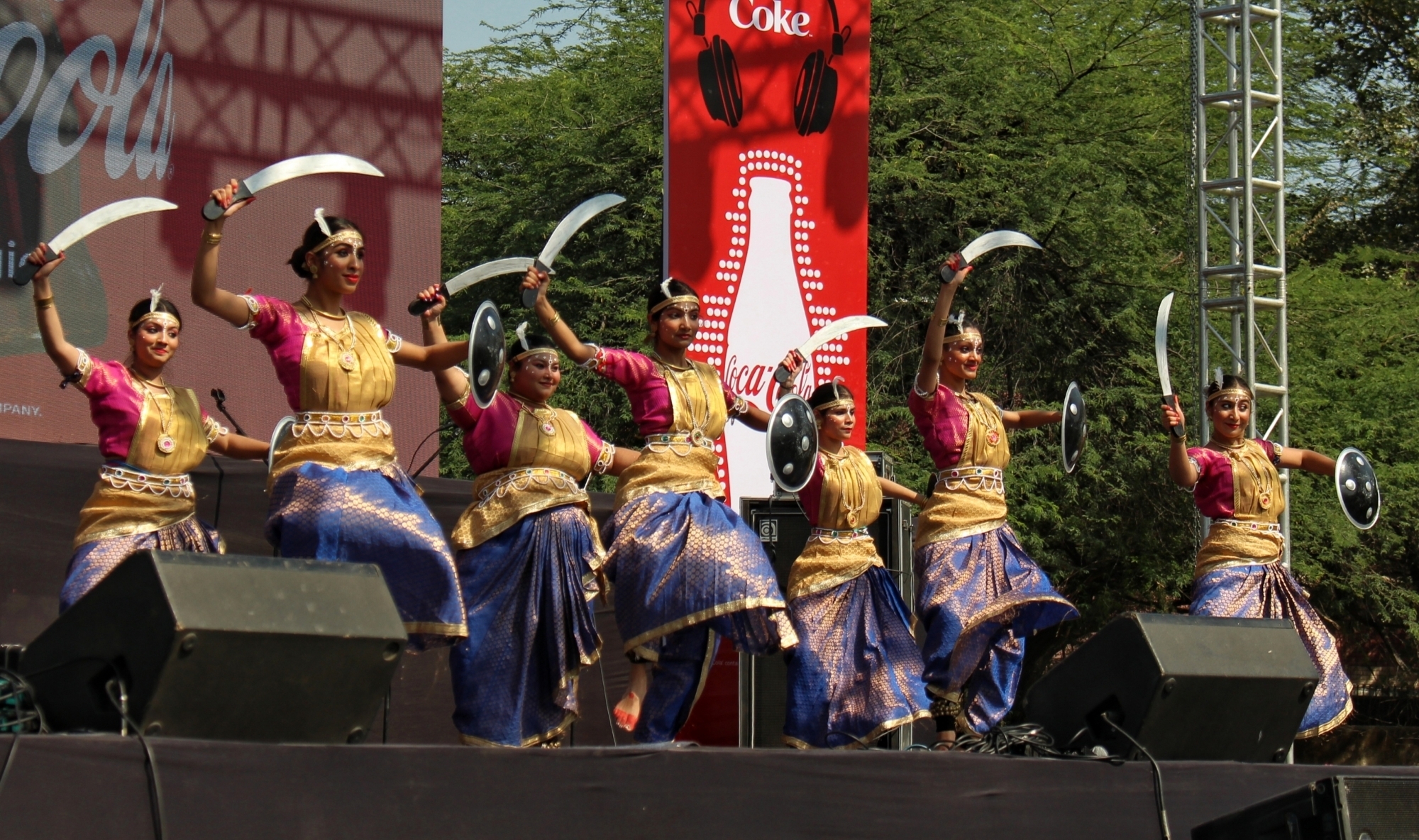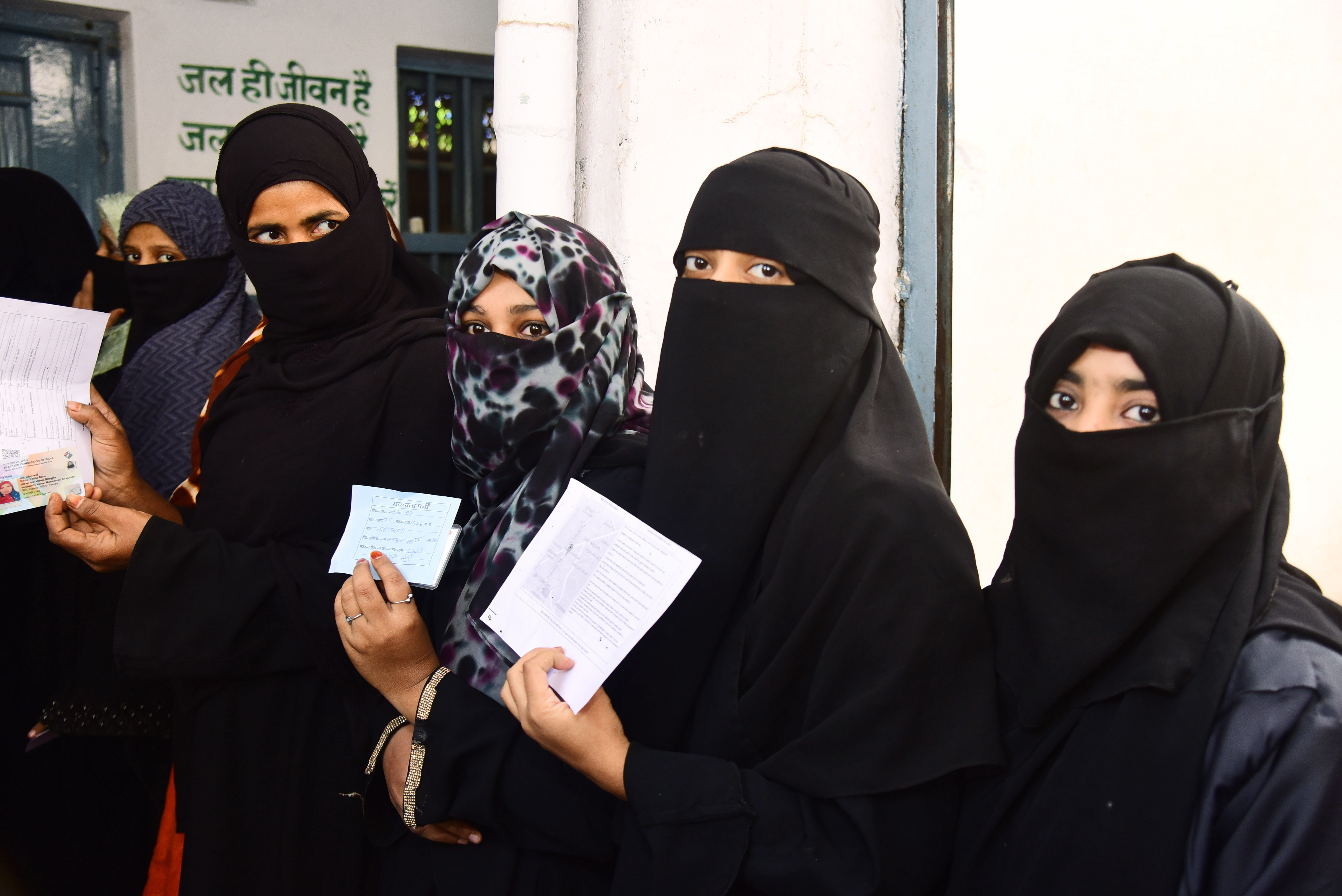
Dr. Amna Mirza
Muslim women in India have historically been at the crossroads of both empowerment and struggle. However, with the right support systems, access to education, and leadership opportunities, they can become powerful agents of change.
Women's empowerment matters because it fuels overall development. When women are empowered, they not only improve their own lives but also uplift entire communities. Empowered women have a multiplier effect, contributing to family well-being, education, health, and economic development. Globally, evidence shows that countries where women are more empowered enjoy higher economic growth and stability.
For Indian Muslim women, who have sometimes faced unique challenges in accessing opportunities, empowerment holds the key to realizing their full potential. As we move forward into a rapidly evolving future, the contributions of Indian Muslim women to India’s progress will be more crucial than ever.
Indian Muslim women have long been part of the country’s social and political fabric, playing pivotal roles in its transformation. Many Muslims have left a lasting legacy through their involvement in India’s freedom struggle and social reforms. Women like Begum Hazrat Mahal, who led a revolt against the British during the 1857 uprising, and Abadi Bano Begum, better known as Bi Amman, the mother of freedom fighter Maulana Mohammad Ali, mobilised resistance against colonial rule. These women defied societal expectations and proved that gender was no barrier to bravery and leadership.
Muslim women with their children dressed as Lord Krishna ahead of the 'Krishna Janmashtami' festival
In addition to their roles as freedom fighters, Indian Muslim women have also contributed to social reforms. Begum Rokeya Sakhawat Hossain, a writer and social activist, advocated women’s education and rights in the early 20th century. Her vision was ahead of her time, inspiring generations of women to pursue education as a means of empowerment.
India’s recent G20 presidency has placed significant emphasis on women-led development, signaling a broader shift from merely empowering women to positioning them as leaders and decision-makers in national and global arenas. Women-led development moves beyond the idea of just providing opportunities to women; it envisions a future where women are at the forefront of innovation, policy-making, and economic growth.This shift aligns with India’s broader goals of inclusive growth and sustainable development.
The focus on women-led development during India's G20 presidency is a recognition that women can drive change in key sectors, including education, health, and technology. Programs like Beti Bachao Beti Padhao (Save the Girl Child, Educate the Girl Child) and schemes aimed at financial inclusion for women are steps toward realizing this vision. The conversation around women-led development also acknowledges that growth must be inclusive, equitable, and rooted in opportunities for all, including Muslim women, who are increasingly stepping into roles of leadership and innovation across various fields.
As India looks to shape the global agenda on development, it recognizes that women—particularly Muslim women—must play an essential role in steering this future.
The role of Indian Muslim women in shaping the country’s future cannot be discussed without emphasizing the importance of education. Education has always been the foundation of empowerment, and for Muslim women, access to quality education has opened new doors to fresh opportunities. In recent years, there has been a notable rise in the enrollment of Muslim girls in schools and higher education institutions. According to the 2019-2020 All India Survey on Higher Education (AISHE), the enrollment of Muslim women in higher education increased from 4.4% in 2014-2015 to 6.9% in five years. This trend in education is a clear indicator that Muslim women are ready to embrace a future where they contribute meaningfully to India’s growth.
 Muslim Students performing at annual event at Indraprastha College for Women, Delhi
Muslim Students performing at annual event at Indraprastha College for Women, Delhi
As India stands at the cusp of the fourth industrial revolution, often referred to as Industry 4.0, the future will be defined by innovations in Artificial Intelligence (AI), automation, and emerging technologies. Indian Muslim women, with access to education and resources, can be key players in these fields.
Encouraging more women to participate in Science, Technology, Engineering, and Mathematics (STEM) will not only bridge gender gaps. Still, it will also ensure that diverse voices shape the future of technology in India. Globally, women account for less than 30% of the STEM workforce, but with focused efforts on inclusivity, the numbers can rise significantly in India.
Similarly, Agriculture 4.0, driven by technological advancements in farming and food production, presents an opportunity for Indian Muslim women to contribute to the country's agricultural economy. This is a sector where women have traditionally played a significant role. With the integration of digital tools, smart farming, and climate-resilient practices, women can lead the way in transforming India’s agricultural landscape.
Education 4.0, which integrates technology with learning, offers Muslim women an avenue to influence the next generation of learners. By becoming educators, mentors, and innovators in the educational sector, they can help drive a cultural shift that emphasizes critical thinking, problem-solving, and digital literacy.
 Muslim Women waiting for their turn to cast their vote
Muslim Women waiting for their turn to cast their vote
Climate change is another area where Indian Muslim women can take on leadership roles. Women have always been central to community resilience in the face of environmental challenges. As climate change continues to threaten livelihoods, particularly in vulnerable regions, women can lead efforts in sustainable practices, environmental education, and advocacy for greener policies.
The path to a future where Indian Muslim women are key contributors to Industry 4.0, STEM fields, agriculture, education, and climate resilience may not be without challenges. Societal barriers, limited access to resources, and the underrepresentation of women in leadership positions still persist. However, the road ahead is filled with promise. By investing in education, fostering innovation, and promoting women-led development, the country can ensure that its future is shaped by diverse perspectives, including those of Indian Muslim women.
As India embarks on this journey, it is essential to recognize that the empowerment of women is not just a policy issue but a moral and economic imperative. Muslim women, with their unique cultural and historical experiences, bring diverse insights that can fuel multidimensional growth. They are not just beneficiaries of development; they are co-creators of the nation's progress.
ALSO READ: Empowered Muslim woman is no threat to religion
The future will be shaped by those who can adapt to change, embrace innovation, and lead with empathy and resilience. Indian Muslim women, with their rich history of leadership and an eye toward progressive education, are poised to be at the heart of this transformation. Whether in STEM, agriculture, education, or climate action, their contributions will define the contours of India’s growth story in the years to come. The sky is truly the limit.
Dr Aman Mirza is an Associate Professor, SPM College, University of Delhio
